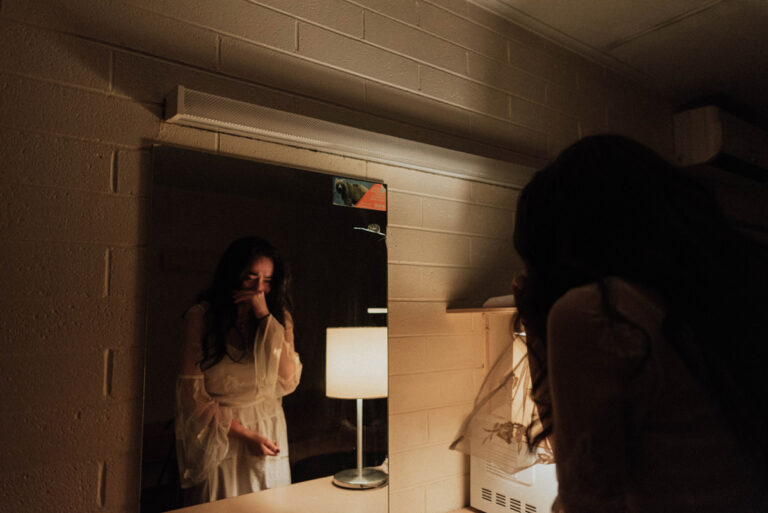White women are fake crying on TikTok and the trend speaks for itself
As a white, straight, cisgender woman, I consider myself as privileged as it gets—right behind my male counterpart, I’ll give you that. Let me first reassure you that I’m no Karen. Yes, I have bad days. Sure, I cry a fair bit, but I don’t film myself fake crying only to then post it on TikTok and take part in probably one of the worst trends I’ve ever seen. I admit, when crying (for real), I sometimes like to look at my own reflection in the mirror. It makes me feel calmer, and apparently, I’m not the only one. But I digress.
Earlier this month on TikTok, a number of white women began posting videos of themselves pretending to cry, only to suddenly stop and smile. Although they initially saw it as an “acting challenge” of sorts, the trend has since kicked off a larger discussion about white women’s historic weaponisation of their victimhood against black people.
This “trend” is chilling. It’s more of a threat. pic.twitter.com/pwyzRrXrdq
— @[email protected] (@Imani_Barbarin) June 16, 2021
By going on the original sound being used specifically for this trend, users can now witness the widespread condemnation it is receiving online. And for obvious and understandable reasons. “From criticism about its tone deaf nature to posts about Emmett Till’s murder, all of the crying was (rightfully) panned for its complete disregard of the innumerable black people who’ve been subject to violence as a result of these ‘crocodile tears’,” writes Paper Magazine.
Historically, white women have used their tears and their false victimhood to accuse and vilify people of colour, particularly those from the black community. This Karen-esque trend is only highlighting the participants’ ability to falsify emotions and manipulate others. I mean, there’s literally a book on this, titled White Tears Brown Scars: How White Feminism Betrays Women of Colour.
We all remember how back in May 2020, a white woman named Amy Cooper was walking her unleashed dog in Central Park. A black man, Christian Cooper, who was also in the park bird-watching, asked the woman to put her dog on a leash. She quickly became upset after Christian Cooper decided to start filming her. In the video that he recorded, Amy Cooper can be heard saying, “I’m taking a picture and calling the cops. I’m going to tell them there’s an African American man threatening my life.” This sparked a massive debate on social media, alleging that Amy Cooper knowingly put Christian Cooper in danger by exaggerating distress in a police call.
Incidents like this happen most days around the world. The cultural power of white tears depends, in turn, on the dehumanisation of people of colour, who were constructed in colonial ‘race science’ as incapable of complex feeling. In other words, when white women cry foul, it is often people of colour who suffer. And going through the many comments the fake crying trend has been receiving since its emergence, it’s safe to say that “a lot of black people are more scared of them than anyone else.”
This TikTok trend—if you can even call that a trend—is also known as the ‘Turn It Off’ trend. When the soundtrack says the words ‘turn it off’, women stop crying and essentially ‘turn off’ their emotions. Considering that, in general, white people have been using their tears against POC for literally centuries, it would be daft for someone to try and defend the trend as a mere acting challenge.
If you do, chances are you’re part of that demography—and still, that’s no excuse. This tone-deaf challenge completely ignores how many people have died because of women pretending to cry. Moreover, let’s say we could put issues of race aside, the trend remains problematic because of how it promotes the act of faking emotions. That shit’s not funny or impressive—it’s terrifying.






